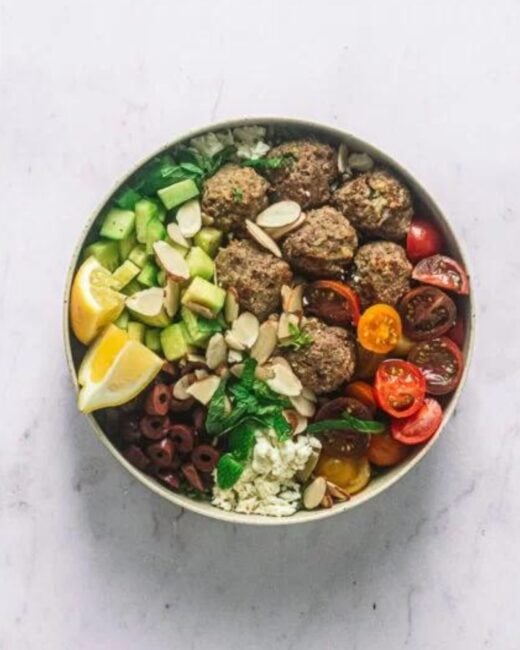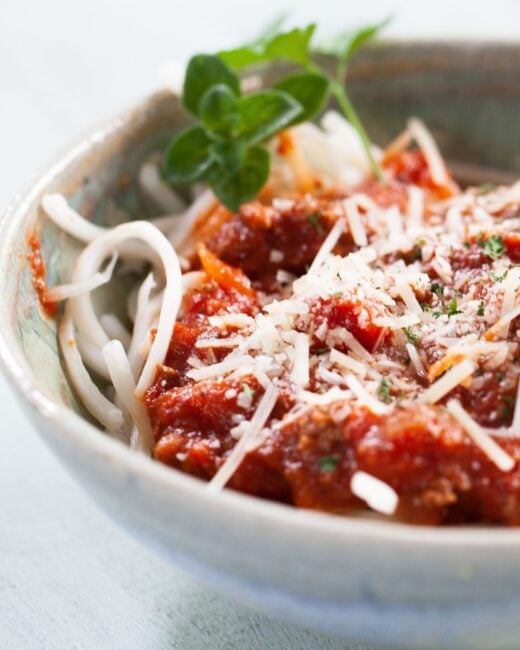Mindful Eating
“When practiced to its fullest, mindful eating turns a simple meal into a spiritual experience, giving us a deep appreciation of all that went into the meal’s creation as well as a deep understanding of the relationship between the food on our table, our own health, and our planet’s health”
– Thích Nhất Hạnh, Zen Master


Too often, we find ourselves hastily rushing through life, whipping past good eats, great conversations, and enriching experiences.
The fast life seems to result in fast meals… or skipped meals! In either case, we always seem to be fighting against the clock, leaving our health on the backburner.



What is Mindful Eating?
Mindfulness is the practice of bringing one’s attention to the present moment, without judgement or evaluation. In the same vein, mindful eating implores us to slow down and bring our full awareness to each and every meal.
Remember the “eating rules” of your youth? Sit down! Don’t watch TV while you eat! Chew your food 30 times!
While well-intentioned, these rigid guidelines attempted to harness our attention in a one-size-fits-all approach to food. Mindful eating acknowledges that each of us are different: mind, body, and soul. The way you experience food is not the same way I experience food. It honors that eating is a deeply personal, almost sacred experience, best served with a side of consciousness.
Where diets tend to focus on outcome, mindful eating is a complete shift in mindset. It focuses on the sensual awareness and experience of eating, without regard for carbs or calories. Its purpose is to create a healthier lifestyle through presence. When we hold space for an “in the moment” meal, we empower ourselves by taking responsibility for what we eat, when we eat, and how much we eat, ultimately benefiting our physical and mental wellbeing.
Techniques for Mindful Eating

Mindful eating is a change in our approach to eating. The focus is not on how we might look or feel months from now, but how we experience food right now. We achieve this not only by tapping into all of our senses, but also by putting away distractions, creating an engaging environment with our table settings, and getting into a receptive mindset.
One approach to mindful eating is to experience food like you’ve never eaten before.
One approach to mindful eating is to experience food like you’ve never eaten before.

Grab a grape or a pretzel or a small morsel of cheesecake.
Whatever you choose, view this bit of food through the eyes of a child who is taking in much of the world for the first time.



Now, place this bit of food on your tongue. Don’t chew or swallow just yet. Let your palate be your eyes. Focus on the consistency and note your instinctual urges for a moment. Now, bite down.
What do you notice? Begin to chew, slowly, letting the flavor take over each and every taste bud. After you swallow, note any hints of aftertaste and how the flavor lingers on your tongue.
Congrats! You’ve just practiced mindful eating!
Aside from the Beginner’s Mind technique, we can also practice conscious consumption through:
1. Non judgement
Show up with curiosity. Every meal is a blank slate. An opportunity for a new experience. Release any prior associations or connotations. You are merely an observer.
2. patience
Take it slow. This isn’t a race. In fact, lunch or dinner might be the only time of day that doesn’t feel like a race. Take a breath and let the experience unfold one moment at a time.
3. acceptance
This is the main tenet of mindfulness, and the difference between presence and distraction. Release all expectations and embrace the now. This moment is as it was meant to be.
4. awareness
Are you reaching for that bag of chips because you’re hungry? Or is it because you’re bored, anxious, sad, or stressed? Eating mindfully is eating with intention. If your desire isn’t hunger, find a better response to the emotion at hand. Likewise, taking a pause during meals to assess if you’re no longer hungry prevents overeating.
Mindful Eating and Stress

Did you know that mindful eating has been linked to a decline in stress?
A 2011 clinical study found that mindful eating resulted in a successful reduction of cortisol levels (the dreaded stress hormone!), anxiety, and emotional eating.
As well, the practice of eating calmly and avoiding overeating promotes healthy digestion, which is linked to clearer skin and a stronger immune system. The beneficial domino effect that comes with mindful eating often results in an overall healthier lifestyle.
Mindful Eating and Weight Loss
Though one of the goals of eating mindfully is to avoid focusing on future results, a vast majority of studies show that weight loss is a common outcome of mindful eating.
Studies also show that at least 85% of people who utilize diets to lose weight end up gaining it back or even exceeding their initial weight within just a few years. Factors such as binge eating, emotional eating, and chronic exposure to stress are usually to blame. Mindful eating works because it addresses each of those things.
Changing our relationship with food, and replacing our negative feelings around it with intention, significantly increases the chances of long-term weight loss success.

Mindful Eating has been a big part of my weight loss journey! When I started to be conscious of my daily choices, I began to notice full on energy changes and changes in my physical body.
Daily Choices Included:
- If I wasn’t hungry, I didn’t eat.
- I slowed down my eating, and took every bite consciously.
- I stopped snacking on bad foods.
- At meals, the amount of food I ate was only as much as my two hands, cupped could hold.
These daily choices have helped me bring more mindfulness into what I was putting into my body and has helped me in so many ways!
“Mindful eating is a way to become reacquainted with the guidance of our internal nutritionist.”
- Jan Chozen Bays



The Sensuality of Mindful Eating

In essence, the practice of mindful eating is a sensual art.
Through self-awareness and giving ourselves permission to be present, we create an intimate relationship with what’s before us. We honor our time and focus on a moment the way we would a lover, setting aside all other thoughts, intentions, and distractions to fully immerse ourselves in the experience. When we do this with events, we create more fulfilling memories. When we do this with people, we create stronger connections. When we do this with eating, we create a better relationship with our bodies. The first step is making a conscious effort to choose
what fuels us rather than what fails us.
Once this choice is made, it will still take some time before healthy habits are formed, so it’s imperative that we are kind to ourselves along the way. Once we’re able to retrain those neural pathways, more and more we will be naturally drawn to what’s best for us.
Mindful Eating Recipes

Greek Meatball Bowl with Lemon Tahini Sauce Recipe
Ever dream of a sun-soaked journey through the Mediterranean, where the scent of fresh herbs fills the air and the sound of the Aegean sea plays in the background? Bring that dream to your dinner table with our Greek Meatball Bowl with Lemon Tahini Sauce. Every bite...

Hearts of Palm Linguini and Legendary Spaghetti Sauce Bowls Recipe
Now, I know, linguini made from hearts of palm? Trust me, this is culinary magic that'll whisk your taste buds on a delightful Italian adventure - all without the carbs of regular pasta! Our Legendary Spaghetti Sauce, rich with hearty ground beef and flavorful San...

Peanut Beef Satay Zoodle Bowl with Peanut Sauce Recipe
Ever found yourself craving the tantalizing tastes of an Asian street food market but couldn’t quite hop on the next plane to Bangkok? Worry not, flavor adventurers! Here’s a dish that'll transport your tastebuds straight to those bustling streets, without leaving the...
Want to take mindful eating further? Bring mindfulness to the kitchen!

